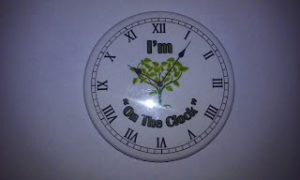Originally published on genealogyatheart.blogspot.com 6 May 2015
I was in a quandary – should I pursue becoming a Certified Genealogist or an Accredited Genealogist? In typical genealogical mindset I looked to the past for help.
As I’ve mentioned previously, I have attained National Board Certified Teacher/Counselor (NBCT) status. NBCT is a rigorous peer review program involving submission of a written reflective portfolio, audio and video tapes of counseling sessions, documentation of community involvement that demonstrates how one has gone above and beyond what is required and a day long exam. I decided 8 years ago that the time was right to pursue NBCT as my youngest had just gone off to college and my husband, also a counselor, agreed to work towards obtaining NBCT, too.
The timing turned out not to be so good – a family member became seriously ill and temporarily moved in with us, one crisis after another happened at the school where I worked and our roof gave out so money was tight (the NBCT process is not cheap!). The portfolio and tapes are submitted in February, the exam is in June and notification of achievement isn’t made until November. When notification day finally arrived I was understandably relieved to learn I had made it. What I discovered, though, was the notification of achievement wasn’t as big of a deal as the process itself had been. The process made me think about counseling in a very different way – I became more skilled as a counselor due to the reflective aspect that is integral to the NBCT process. I became stronger professionally and that was what I wanted the outcome to be of whichever genealogical process I decided to follow.
With that criterion in mind, I reviewed the information online from both the Board for Certification of Genealogists (BCG) and International Commission for the Accreditation of Genealogists (ICAPGen).
From BCG’s website “Certification results from evaluation of work samples in a portfolio submission. BCG requires different materials for each certification category. If three to four judges recommend certification, you will be certified for a five-year period. You can perpetuate your certification with five-year renewal applications showing that you have kept your skills up to date.” This is very similar to the NBCT process. BCG’s requirements are:
- Signing that you will comply with the Genealogists’ Code of Ethics
- Submitting
- a background resume
- a paper based on a BCG provided document in which you transcribe, abstract, evaluate and formulate a research plan
- the same as bullet 2 but with a document you provide concerning an area that is your primary research focus
- a research report prepared for a client with the client’s permission
- a case study of conflicting or indirect evidence and
- a kinship determination project
Challenging but doable.
Next I looked at ICAPGen requirement. The bold and italics are mine to emphasize my concern, “… Your presentation of four connecting generations in your project should represent your knowledge of a variety of records that are useful at different times in your chosen region. The regional focus allows for practice in records that might be included in the written exams.
Many of our U.S. ancestors migrated from one geographical region to another so we might have to choose a family other than our own for the four generation project. This might be the ancestry of another family member, a client, or a family that is known to have four generations that lived in the same geographic region. We might also select from our own ancestry a related descendant line that meets the criteria. Note that privacy issues are not violated because the records are for events of people born before 1900 and identities of living persons are not included in the report.”
In our family, my kids are first generation Floridians so I would be looking for a client. Finding a client to meet ICAPGen’s requirements in my area would be difficult. Here’s why – for simplicity, let’s say a generation is 20 years. To meet ICAPGen’s requirement we’ll say my client’s Person 1 was born in 1899 since the requirement is a birth year prior to 1900. Person 1’s parent (generation 2) would be born in 1879, grandparent (generation 3) would be born in 1859, and great grandparent (generation 4) would be born in 1839.
Florida is a large state and I don’t claim to be an expert on its entirety. I’d prefer to focus on the Tampa Bay region as that is where I research and where I have the most knowledge. Here’s the historical population of Tampa, the area’s largest city, from Wikipedia:
| Historical population |
| Census |
Pop. |
|
%± |
| 1850 |
974 |
|
— |
| 1870 |
796 |
|
— |
| 1880 |
720 |
|
−9.5% |
The first census is shown as 1850 because Florida did not become a state until March 3, 1845. Citidata.com reports that “The 1830s and 1840s were marked by repeated violent conflicts between the Seminoles and white soldiers and settlers. Although Tampa emerged from the so-called Second Seminole War (1835–1842) as a fledgling town rather than just a frontier outpost, it subsequently endured a variety of setbacks, including further skirmishes with the Seminoles, yellow fever epidemics, and, in 1848, a hurricane-generated tidal wave that leveled the village.” I know there are Tampa families today that can trace their lineage back to pre-Tampa days when the area was known as Fort Brooke but I don’t want to use something that’s already been done. Finding a new Tampa pioneer family with 4 generations going back to 1839 would be time consuming and a matter of luck.
I could expand my search area to meet the requirement. The Florida population in 1837 was 48,000, half being slaves, and most people lived in the northern part of the state, between St. Augustine and Pensacola. ICAPGen wants primary sources. To find a primary source slave document from 1839 would be miraculous. Remember, this was the period of the Seminole War and the document would have to have also survived the Civil War, hurricanes, mold, and courthouse fires. Even finding a primary source for a white man in 1839 in Florida is something to celebrate. Plus, I don’t live close to where I would be researching to find the document.
This would explain why ICAPGen lumps Florida in the Gulf South region of the United States, along with Georgia, Alabama, Mississippi, Louisiana, Arkansas, and Texas. A client could have family from any of the other listed states which allows for the requirement to be met. However, I would not be comfortable taking clients from the entire Gulf South region. I would be doing them a disservice as I don’t have the knowledge or skills to assist them. I suppose others feel the same way I do as there are only 11 ICAPGen’s that have achieved Accredited Genealogist status for the Gulf Shore region.
So the criterion made the decision for me – I will be seeking Certified Genealogist through BCG.
Next time – I’ll be traveling to the Big Apple for a conference and my thoughts are on motherhood and the brain.

